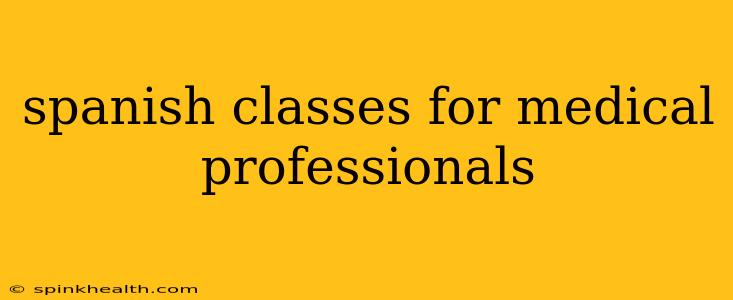The aroma of freshly brewed café con leche hung in the air as Dr. Elena Ramirez, a seasoned cardiologist, recounted a frustrating morning. A Spanish-speaking patient, gripped by chest pains, struggled to articulate their symptoms. The language barrier, Dr. Ramirez lamented, created a chasm between her expertise and the patient's urgent need. This isn't an isolated incident. In a diverse healthcare landscape, effective communication is paramount, and for medical professionals, learning Spanish can be the key to unlocking better patient care and improved outcomes. But finding the right Spanish classes for medical professionals requires careful consideration. This guide will navigate you through the essential elements to find the perfect fit.
Why is Learning Spanish Crucial for Medical Professionals?
The increasing diversity of the patient population makes Spanish proficiency a vital asset for healthcare professionals. Many hospitals and clinics serve significant Spanish-speaking communities, and effectively communicating with these patients is not just a matter of courtesy; it's crucial for accurate diagnoses, appropriate treatment plans, and overall patient satisfaction. A miscommunication, however small, can have significant consequences. Imagine the risk of a medication error due to a misunderstanding of instructions, or the impact on a patient's mental well-being when they feel unheard or misunderstood.
What are the benefits of learning medical Spanish?
Beyond improved patient care, fluency in Spanish can enhance a medical professional's career prospects. In many regions, bilingual healthcare providers are highly sought after, leading to increased job opportunities and potentially higher salaries. It's a valuable skill that sets you apart in a competitive field. Moreover, it fosters a deeper connection with patients, creating trust and improving the overall patient experience.
Finding the Right Spanish Classes for Medical Professionals: A Detailed Guide
The market offers numerous Spanish language courses, but selecting the most suitable one for medical professionals requires specific considerations. The ideal course should cater to the unique vocabulary and context of the medical field.
What should I look for in a medical Spanish course?
- Medical Terminology: A high-quality course will incorporate specialized medical vocabulary, covering common illnesses, procedures, symptoms, and medications. Look for courses that explicitly state they focus on medical Spanish.
- Realistic Scenarios: Effective learning involves practicing real-life scenarios. The best courses will include role-playing exercises simulating doctor-patient interactions in various medical settings.
- Cultural Sensitivity: Understanding cultural nuances is just as critical as language proficiency. Look for courses that address cultural differences in communication styles and healthcare practices.
- Qualified Instructors: The instructor’s credentials matter. Choose courses taught by experienced instructors with expertise in both medical Spanish and language pedagogy. Native speakers are ideal, as they can provide authentic pronunciation and insights into cultural nuances.
- Flexible Learning Options: Busy schedules are a reality for medical professionals. Choose a course that offers flexible learning options, such as online courses, evening classes, or weekend workshops.
Common Questions About Medical Spanish Classes
How long does it take to learn medical Spanish?
The time required to reach fluency varies greatly depending on individual learning styles, prior language experience, and the intensity of the course. However, consistent effort and immersion in the language are key. Expect a significant investment of time and dedication.
What is the best way to practice medical Spanish?
Immersion is crucial. Engage in conversations with Spanish-speaking colleagues, friends, or family. Utilize online resources such as medical Spanish dictionaries, podcasts, and videos. Seek opportunities to volunteer in settings where you can interact with Spanish-speaking patients.
Are online medical Spanish classes effective?
Many excellent online medical Spanish courses are available, often offering flexibility and convenience. However, ensure the online program is structured, interactive, and provides opportunities for feedback and practice.
How much do medical Spanish classes cost?
Costs vary greatly depending on the institution, course length, and learning format. Research different options to find a course that fits your budget.
Conclusion: Invest in Your Skills, Invest in Your Patients
Learning Spanish is not just a professional enhancement for medical professionals; it's an investment in the well-being of your patients. By bridging the communication gap, you create a more compassionate and effective healthcare experience for everyone. The right Spanish classes can equip you with the skills and confidence to excel in this increasingly diverse healthcare landscape. Start your journey today, and witness the positive impact on both your career and your patients' lives.

